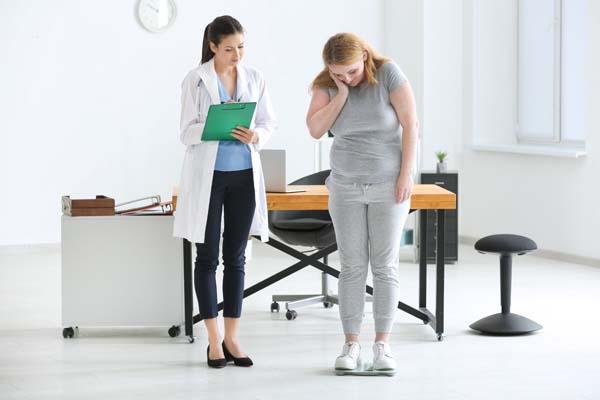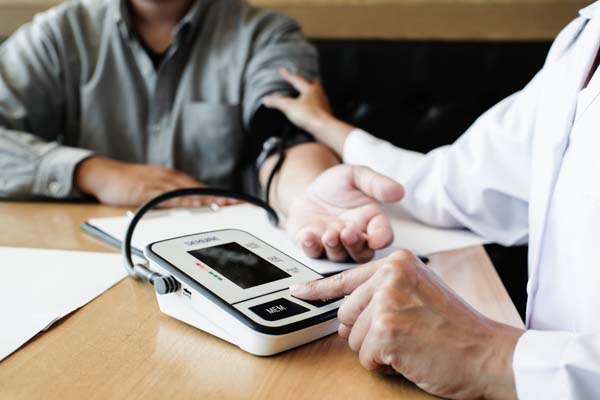COPD TreatmentIrvine, CA
Chronic Obstructive Pulmonary Disease, COPD, treatment can have significant positive effects on not only your respiratory system but overall general health. COPD is a chronic condition that limits or restricts normal breathing, which can greatly affect other body parts. Seeking immediate diagnosis and treatment may help you recover faster and learn to manage your condition to prevent further complications in the future.
At Harbor Medical Clinic and Wellness Center, we offer COPD treatments for patients experiencing difficulty breathing or other related symptoms. Our team can help assess and diagnose your case and discuss treatment options to improve your overall health. To learn more about a procedure or schedule an appointment, call 1-949-551-1234 today.
Understanding COPD
Chronic Obstructive Pulmonary Disease, or COPD, is a chronic lung disease caused by narrowed or blocked airways that make it difficult to breathe normally. A person can develop a chronic cough trying to clear their airways. COPD risk factors include tobacco smoke, asthma, occupational exposure to fumes, dust, chemicals, and genetics.
Asthma-COPD overlap is a diagnosis that indicates an individual has both asthma and chronic obstructive pulmonary disease (COPD) symptoms. Asthma-COPD overlap is not considered a separate disease, but a diagnosis makes it easier for medical professionals to assess all symptoms involved and create a treatment plan that treats the entirety of the individual's condition. Those diagnosed with Asthma-COPD overlap tend to have more frequent symptoms than those with asthma or COPD alone.
Symptoms of COPD
There are various signs that may indicate that a patient suffers from COPD. Some of the common symptoms of COPD include:
- A chronic cough that may produce mucus (sputum) that may be clear, white, yellow, or greenish
- Chest tightness
- Frequent respiratory infections
- Lack of energy
- Shortness of breath, especially during physical activities
- Swelling in ankles, feet, or legs
- Unintended weight loss (in later stages)
- Wheezing
People with COPD are also likely to experience episodes called exacerbations, during which their symptoms become worse than the usual day-to-day variation and persist for at least several days. Seeking medical attention for these symptoms early on can help providers manage the patient’s condition while helping patients implement lifestyle practices and changes to upkeep their health.
Causes of COPD
The main cause of COPD in developed countries is tobacco smoking. In the developing world, COPD often occurs in people exposed to fumes from burning fuel for cooking and heating in poorly ventilated homes. Only some chronic smokers develop clinically apparent COPD, although many smokers with long smoking histories may develop reduced lung function.
The two causes of airway obstruction include Emphysema and chronic bronchitis. Emphysema is a lung disease that causes the destruction of the fragile walls and elastic fibers of the alveoli. Small airways collapse when a person exhales, impairing airflow out of their lungs. Chronic bronchitis is a condition in which the bronchial tubes become inflamed and narrowed, and the lungs produce more mucus, which can further block the narrowed tubes.
Diagnosing and Treating COPD
We typically diagnose COPD through a series of tests, including lung (pulmonary) function tests, chest X-rays, CT scans, arterial blood gas analysis, and laboratory tests. The first four types of tests determine the patient’s lung function and can show signs of emphysema or other conditions, while lab tests rule out other conditions that may appear as symptoms of COPD. We will discuss and determine treatment options depending on the patient’s case, symptoms, and the cause of their condition.
Treating COPD can help control symptoms, slow progression, reduce the risk of complications and exacerbations, and improve a patient’s ability to lead an active life. Treatments for COPD include:
- Smoking cessation (the most important action)
- Medications: bronchodilators, inhaled steroids, oral steroids, and Phosphodiesterase-4, inhibitors, Theophylline, and antibiotics
- Lung therapies: oxygen therapy and a pulmonary rehabilitation program
- Noninvasive ventilation therapy: breathing devices such as bilevel positive airway pressure, or BiPAP machine
- Surgery: lung volume reduction surgeries, lung transplants, and bullectomies
Proposed or recommended treatments depend largely on the patient’s case and the severity of their condition. Many patients have mild symptoms of COPD and can improve their condition through smoking cessation, lifestyle changes, and continual monitoring. Others may need regulatory medicine. Severe or advanced cases may require therapy or surgery.
Schedule a Visit Today
COPD consultations and treatments are available at our office. The Harbor Medical Clinic and Wellness Center team looks forward to treating you and helping you manage your condition. Call our office at 1-949-551-1234 to learn more or schedule an appointment.
Frequently Asked Questions About COPD Treatment
What is COPD?
Chronic Obstructive Pulmonary Disease, or COPD, is a chronic lung disease caused by narrowed or blocked airways that make it difficult to breathe normally. Those with COPD can have asthma-related symptoms, and some patients may be diagnosed with both conditions. It is a serious respiratory condition but can be managed through medical treatment and lifestyle changes.
What is Asthma-COPD overlap?
Asthma-COPD overlap is a diagnosis indicating an individual has asthma and chronic obstructive pulmonary disease (COPD) symptoms. Those with asthma-COPD overlap may experience more frequent and more severe symptoms than those with one condition alone. We can assess and diagnose your case to determine the best possible treatment.
What are the risk factors for COPD?
COPD is strongly linked to cigarette smoking. Other types of tobacco smoking, including pipes, cigars and water pipes, and smoking marijuana are also risk factors. Additional risk factors for COPD include exposure to second-hand smoke and air pollutants (air pollution, chemical fumes or dust), genetics/family history, and older age.
What are the four stages of COPD?
The four stages of COPD are mild, moderate, severe, and very severe. Doctors determine which stage a patient is in by using a breathing test called a pulmonary function test. This test measures how hard it is for a patient to breathe out (called airflow obstruction).
What are the symptoms of a COPD flare-up?
A flare-up or exacerbation of COPD is when symptoms suddenly worsen. Symptoms of a flare-up include, coughing and/or wheezing with or without mucus, shortness of breath, swelling in the ankles, legs, or feet, chest tightness, low energy, and frequent respiratory infections.
Contact Us
Harbor Medical Clinic and Wellness Center is located at 33 Creek Rd., Building C, Suite 310 Irvine, CA 92604.





